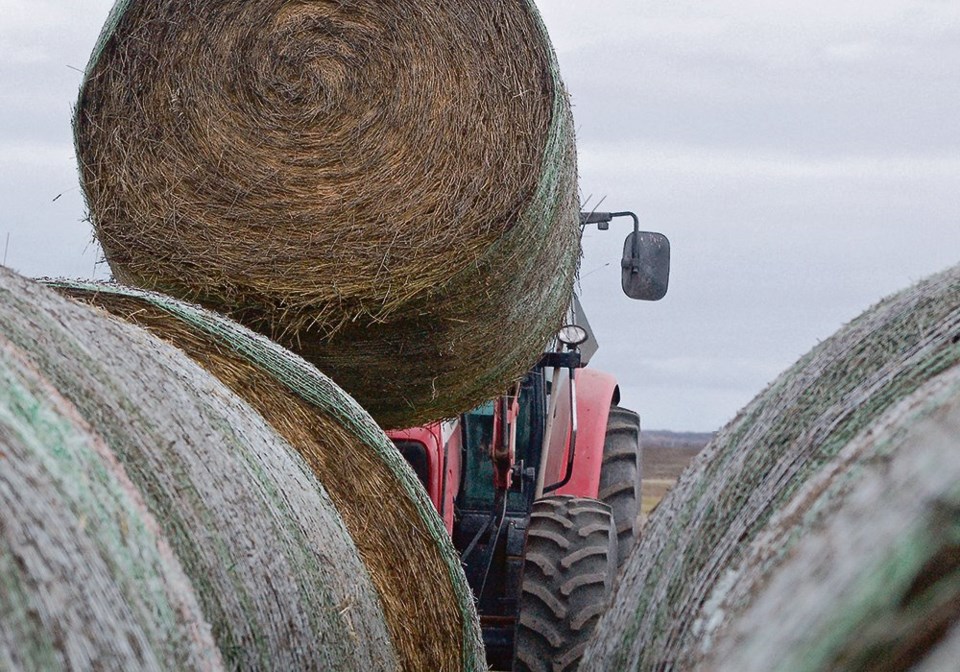The programs deliver hay from Eastern Canada to help western ranchers hit hard by a vicious drought.
Keith Currie, CFA vice-president, said the CFA Hay West program has received donations of tens of thousands of dollars and 80,000 bales so far. The CFA program has also been bolstered by a $250,000 donation from Canadian National Railway to help with transportation costs.
“The farmers continue to provide us with the feedstock here in Eastern Canada — that’s been terrific,” said Currie. “Guys and gals who normally wouldn’t take a third or fourth cut of hay are doing that for the sole purpose of donating, having it available, for Hay West.”
John Longhurst, MDS spokesperson, said their version of Hay West is focused on connecting Ontario feed supplies with Saskatchewan producers, rather than the larger CFA version, which is taking feed from across Eastern Canada for those in need throughout the West.
“Things are pretty desperate out there,” said Longhurst. “Fields that once produced ample for their livestock produced barely any this year.”
With the first snows of the winter falling across the western provinces, that hay shortage will become more acute, he said.
The feed from MDS Hay West has started to arrive on ranches in Saskatchewan.
As much as the feed is welcome, it has also been a morale boost for those struggling to get through to next year, said Longhurst.
“One farmer said that in addition to the actual hay, it’s great to know that they are being remembered by farmers in Ontario, that they haven’t been forgotten,” he said. “They are feeling good to know just that someone cares.”
It’s simply the culture of agriculture, said Longhurst.
Currie said the CFA Hay West is collecting hay from all points between Prince Edward Island and Ontario to ship to producers in the West.
Applications for the additional feed are coming in at a steady clip from the Prairies, he said.
“I think they are trying to assess what they have and how far it’s going to get them,” said Currie. “Will it get them through the winter? Will it get them through the next couple of months?”
He said he expects more applications to come in as ranch-by-ranch assessments are carried out. CFA Hay West plans to ship feed throughout the winter.
“It’ll be steady movement of product out West. I’m sure people that might be close to having enough feed and realize they don’t have enough will apply,” said Currie. “It’s going to be an ongoing process.”
Currie said that process will continue until all the eastern hay committed to the program is shipped to those who need it.
The quality of the feed has been above average, he added, which has alleviated some fears that it might not go as far as needed.
But Currie is realistic about the impact of the program, recognizing that as much help that is being given, the size, length and duration of this year’s drought is such that there is no single answer to solving the problem.
Despite the shipping challenges being faced by those needing to move just about any product, both CFA and MDS say they’ve been able to secure a steady network of feed movement from the east to the west by both truck and rail.
Details of either how to apply to the CFA or MDS Hay West programs or donate can be found on each of the organization’s websites.




